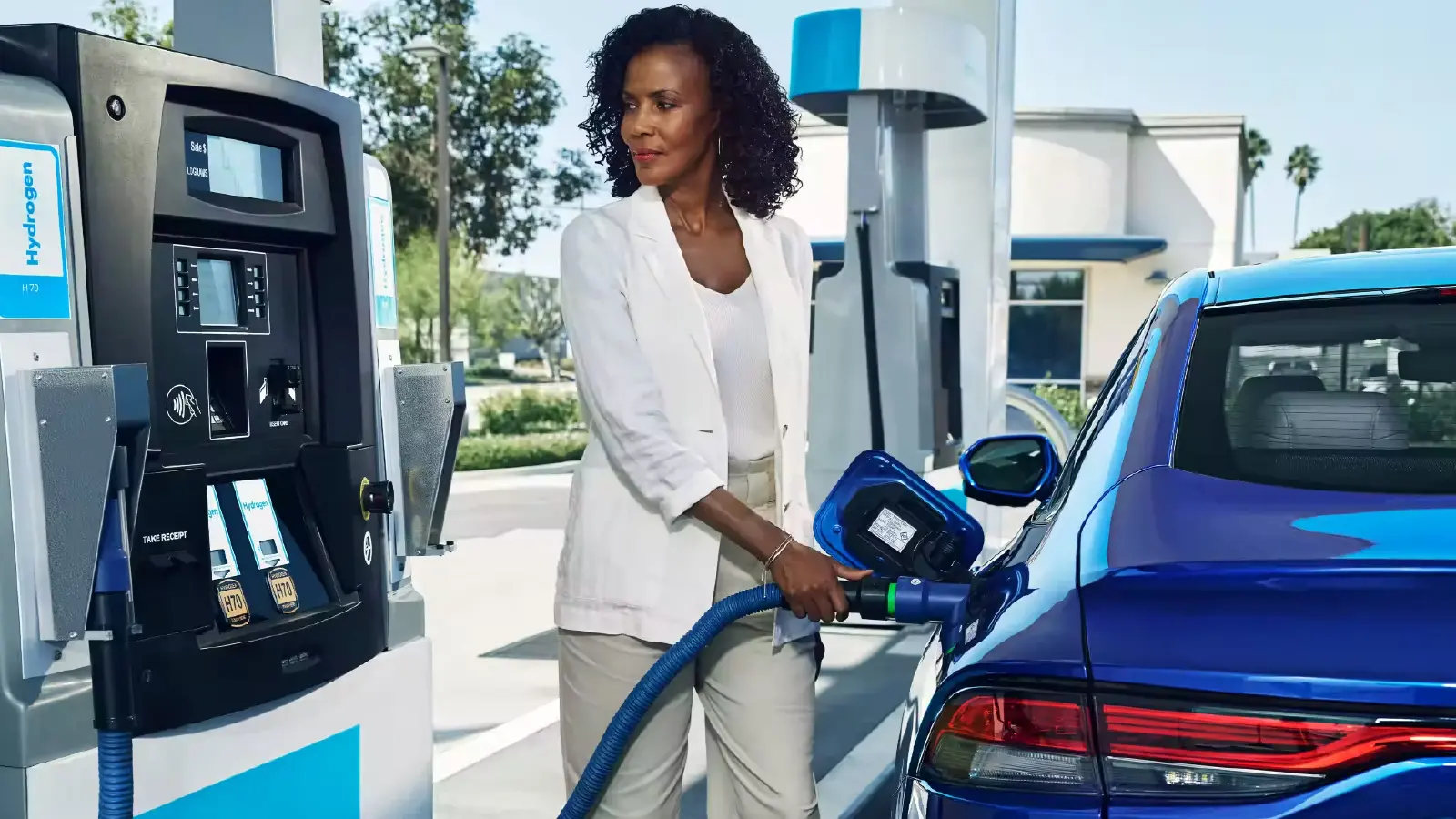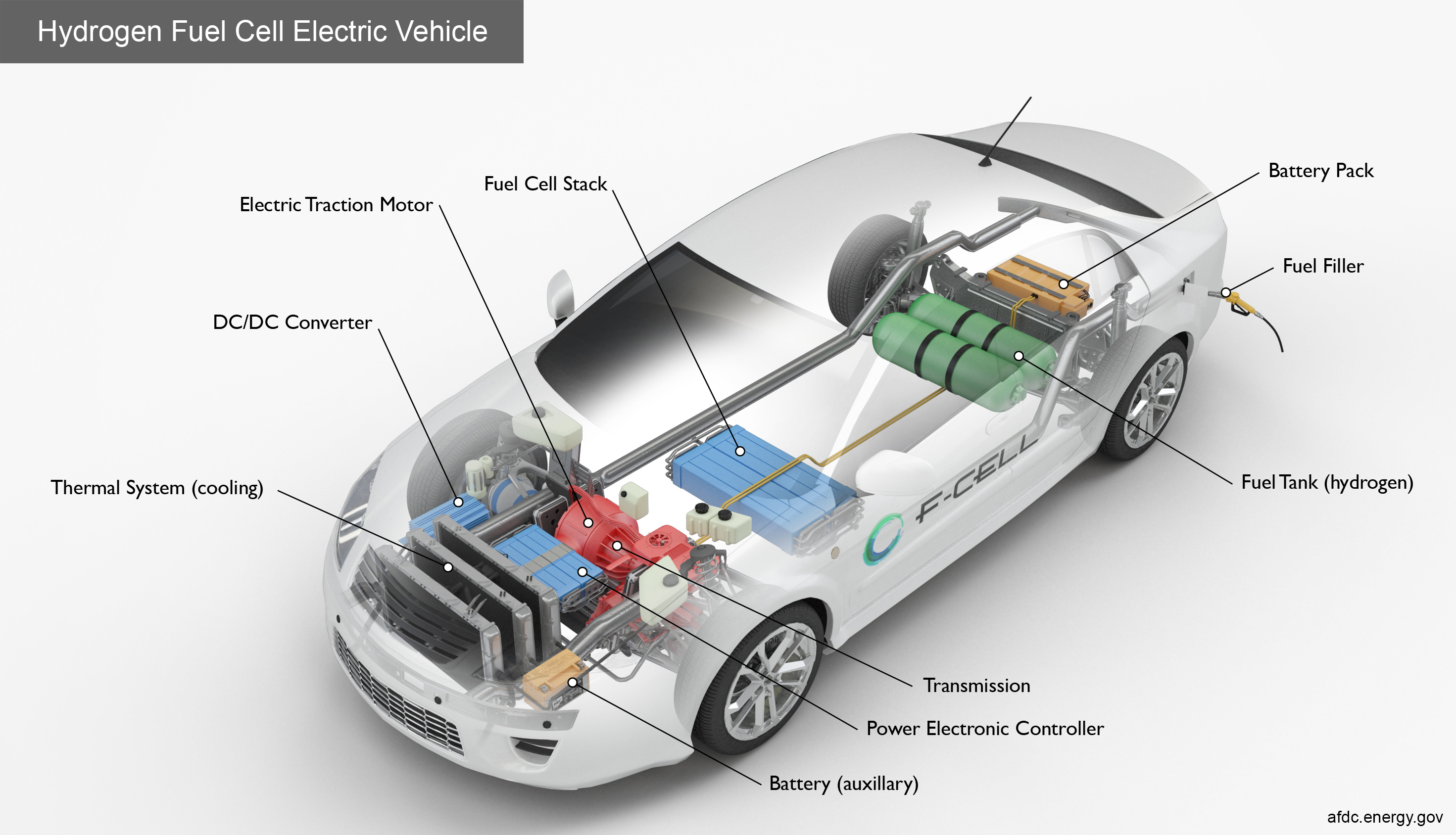Palm Coast Local
Locals Helping Locals

The Future of Hydrogen Cars: Are They Set to Replace EVs
- Details
- Written by: Palm Coast Local
- Parent Category: Business Blog
- Category: Tech Matters

Hydrogen Cars vs. Electric Vehicles: A Comparison
1. Refueling vs. Charging Time
One of the biggest advantages hydrogen fuel cell vehicles (FCVs) have over battery-electric vehicles (BEVs) is refueling time. Hydrogen cars can be refueled in about 3-5 minutes, similar to a gasoline-powered car, whereas EVs often require 30 minutes to several hours for a full charge, depending on the battery size and charging station.
2. Driving Range
Hydrogen cars also offer longer driving ranges. Models like the Toyota Mirai and Hyundai Nexo can travel up to 400-450 miles per tank, whereas most EVs, including Tesla models, offer ranges between 250-400 miles per charge. Some high-end EVs can reach 500 miles, but these models are expensive.
3. Infrastructure Challenges
While hydrogen fueling stations are still limited, they are easier to install than a large-scale EV charging network. A hydrogen refueling station operates similarly to a gasoline station, meaning existing infrastructure could be adapted. In contrast, widespread EV charging requires massive electrical grid upgrades and additional power generation.
4. Battery Degradation vs. Fuel Cell Longevity
EV batteries degrade over time, with most lithium-ion batteries lasting 8-15 years before needing replacement. Hydrogen fuel cells, on the other hand, experience much less degradation and can last over 15 years with minimal efficiency loss.
5. Environmental Impact & Resource Use
- EVs: Require lithium, cobalt, and nickel, which are limited resources that must be mined, often causing environmental damage.
- Hydrogen Cars: Use hydrogen, the most abundant element in the universe. However, producing hydrogen cleanly is a challenge, as much of it is currently derived from natural gas.
Who Are the Key Players in Hydrogen Production?
Hydrogen production is a growing industry, with several major companies leading the way in clean hydrogen technology. Here are some of the key players:
1. Air Liquide (France)AIQUY (OTCMKTS)
Air Liquide is one of the world’s largest hydrogen producers, investing heavily in green hydrogen projects (produced from water using renewable energy). The company is building large-scale electrolyzers to supply hydrogen for transportation and industry.
2. Plug Power (USA)NASDAQ: PLUG
Plug Power is a leader in hydrogen fuel cell systems, providing hydrogen solutions for forklifts, delivery trucks, and now vehicles. They are rapidly expanding into hydrogen production and infrastructure.
3. Linde (Germany)
Linde is another major industrial gas company producing blue hydrogen (hydrogen derived from natural gas with carbon capture) and green hydrogen for fuel cell vehicles.
4. Toyota & Hyundai
While not direct hydrogen producers, these automakers are heavily investing in hydrogen infrastructure and working with energy companies to expand refueling stations.
5. Shell & BP
Big oil companies like Shell and BP are transitioning to hydrogen as part of their renewable energy strategies. They are developing hydrogen refueling stations and partnering with automakers.
Types of Hydrogen: Green, Blue, and Gray
Hydrogen can be produced in several ways, each with different environmental impacts:
- Green Hydrogen: Made from water electrolysis using renewable energy (solar, wind, hydro). This is the cleanest but most expensive method.
- Blue Hydrogen: Derived from natural gas, with carbon capture to reduce emissions.
- Gray Hydrogen: Produced from natural gas without carbon capture. This is the most common method today but has a large carbon footprint.
Challenges to Hydrogen Adoption
Despite its advantages, hydrogen faces several challenges before widespread adoption:
- High Production Costs: Green hydrogen is still expensive compared to battery production.
- Limited Refueling Stations: While hydrogen stations can be built relatively quickly, the current network is small compared to EV chargers.
- Energy Efficiency: Producing hydrogen and converting it into electricity in a fuel cell is less efficient than directly using electricity in a battery.
Conclusion: Will Hydrogen Replace EVs?
Hydrogen has the potential to compete with or even replace EVs in certain markets, especially for long-haul transportation, trucking, and areas where fast refueling is essential. However, in the short term, EVs will continue to dominate due to existing infrastructure and lower costs.
For hydrogen cars to become mainstream, green hydrogen production must become cheaper, refueling networks must expand, and automakers need to develop more FCV models. If these challenges are addressed, hydrogen could very well become the dominant
The Role of Hydrogen in EV Charging
Hydrogen serves as an energy carrier, enabling stations to generate electricity on demand. This approach minimizes energy losses associated with grid transmission and allows for greater control over the energy supply. Additionally, hydrogen can be produced using renewable energy sources such as wind or solar, further enhancing its environmental benefits.
By leveraging the unique capabilities of hydrogen fuel cells, EV charging stations can become more flexible, reliable, and sustainable, supporting the growing demand for electric vehicles across diverse locations.
Environmental and Health
Hydrogen is an optimal energy solution in areas that are difficult to decarbonize. Hydrogen advantages include eliminating emissions to improve regional air quality while reducing greenhouse gas emissions; hydrogen reduces CO2, particulates, and NOx emissions as compared to internal combustion engines.

Toyota Mirai
Toyota's Mirai is a pioneering hydrogen fuel cell sedan that combines hydrogen and oxygen to generate electricity, emitting only water vapor.
Honda CR-V e:FCEV
Honda CR-V e:FCEV Honda introduced the CR-V e:FCEV, America's first plug-in hydrogen fuel cell electric vehicle, offering the flexibility of emission-free electric driving or hydrogen fuel.
Hyundai Nexo
Hyundai's Nexo is a hydrogen-powered SUV that has been available since 2018, offering a range of advanced features and a focus on sustainability.
BMW iX5 Hydrogen
BMW's iX5 Hydrogen is a hydrogen-powered SUV that integrates BMW's advanced fuel cell technology, offering a maximum output of 401 horsepower and a range of up to 300 miles

NamX HUV
The NamX HUV is a hydrogen-powered coupe SUV from the French-Moroccan startup company NamX, featuring interchangeable hydrogen tanks and a range of 500 miles.
Add comment